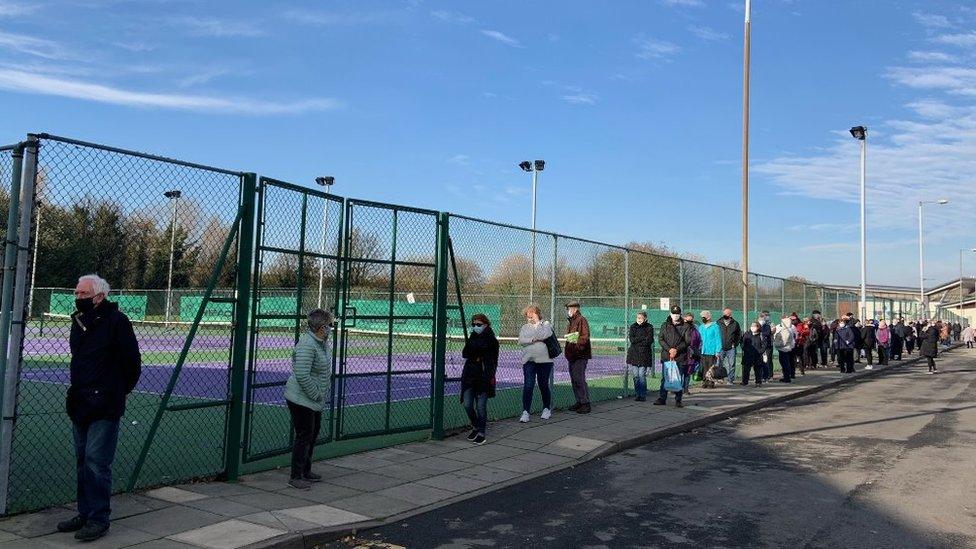Covid-19: Liverpool City Region cases rise 'extremely worrying'
- Published
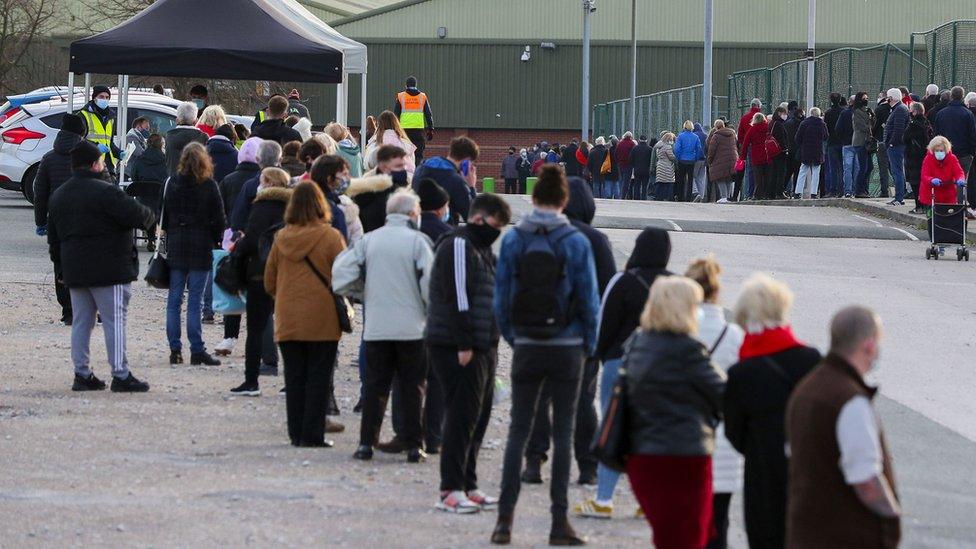
Rates came down in Liverpool after mass testing took place
A sharp rise in coronavirus cases in Liverpool City Region is "extremely worrying", a director for public health has said.
Knowsley and Halton are the top two areas in England where the rate of coronavirus cases are rising the sharpest.
Eileen O'Meara said she believed an increase in social mixing at Christmas and the new variant were to blame.
The region had seen cases reduce after Liverpool's mass testing programme.
The latest data shows a 322% increase of cases in a week in Knowsley - up from 188 cases per 100,000 people in the week ending 26 December to 794 in the week ending 2 January.
In Halton, which includes Runcorn and Widnes, there has been a 315% increase of cases to 870 cases per 100,000 people in the week ending 2 January.
Liverpool City Region's four other boroughs, including Liverpool, are also in England's top 20 of highest rising cases.
The city had been hailed a success and Health Secretary Matt Hancock said cases had been brought down "quite remarkably" after the rollout of mass testing.
The region was placed in tier two following England's second lockdown in November, then moved to tier three on 30 December before joining the rest of England under a national lockdown this week.
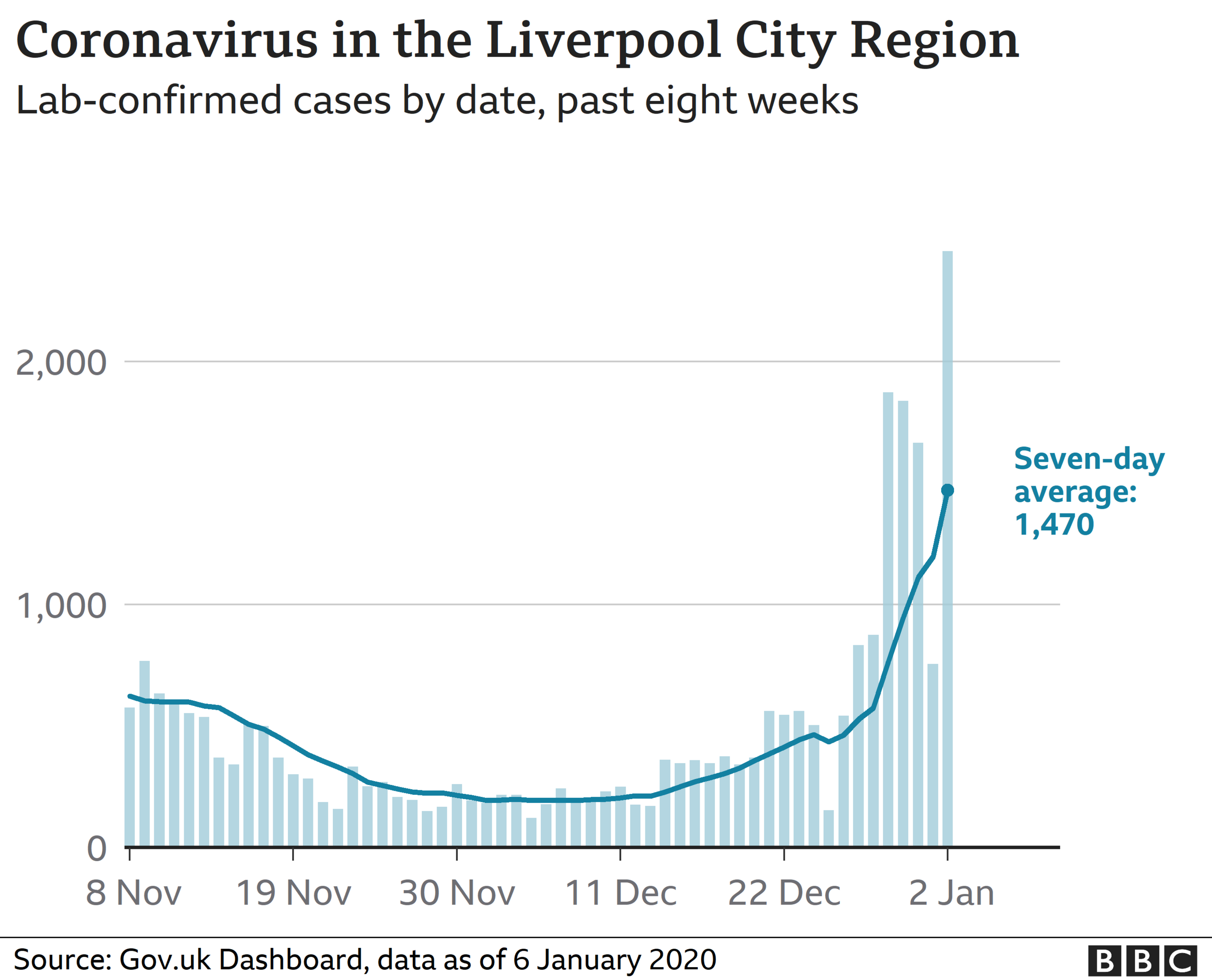
Ms O'Meara, director for public health for Halton, said she was "very concerned" about the rise in cases which she said was happening across Liverpool City Region and Cheshire.
"We are now seeing the impact of the new variant in the north west. We know it spreads up to 70% more quickly than the previous variant," she said.
"I think there were more social gatherings over Christmas. I think a lot of people had made their Christmas plans [before any changes] and there was possibly more social gathering than we would have wanted."
Liverpool Metro Mayor Steve Rotheram tweeted, external that cases were "continuing to increase dramatically" across the city region.
He asked people to "please be careful and keep doing everything you can to help keep yourself and your loved ones safe, and to stop the NHS from being overwhelmed".
Ms O'Meara said she was "extremely worried" about the sharp increase in cases and the impact this would have on the region's hospitals.
But she said if people "do what they need to do to protect each other and care about each other" the rates could come down again.
Knowsley Council pleaded with residents to follow the rules, saying it was sending a "strong message" that "lockdown must mean lockdown".
"Help us save lives and protect the NHS by staying at home," the authority tweeted., external

Analysis
By Claire Hamilton, Political Reporter, BBC Radio Merseyside
Liverpool was of course the poster child for mass testing - so is this rise proof it didn't work? It's not as clear cut as that.
Mass testing has now been scaled back. Initially there were sites on every street, now there are a handful and they're not all as easily accessible as the temporary sites.
This testing really raised awareness and focused minds, possibly now it has become less visible people are less careful.
"Tier tourists" are also being blamed for the rise. Anecdotally, early December saw an influx of people coming to the (then tier two) Liverpool City Region from neighbouring higher tier places for mini breaks and nights out.
Add to that socialising in the run-up to Christmas - people meeting up indoors with people they didn't live with, despite this being against the rules.

Why not follow BBC North West on Facebook, external, Twitter, external and Instagram, external? You can also send story ideas to northwest.newsonline@bbc.co.uk, external
- Published6 January 2021
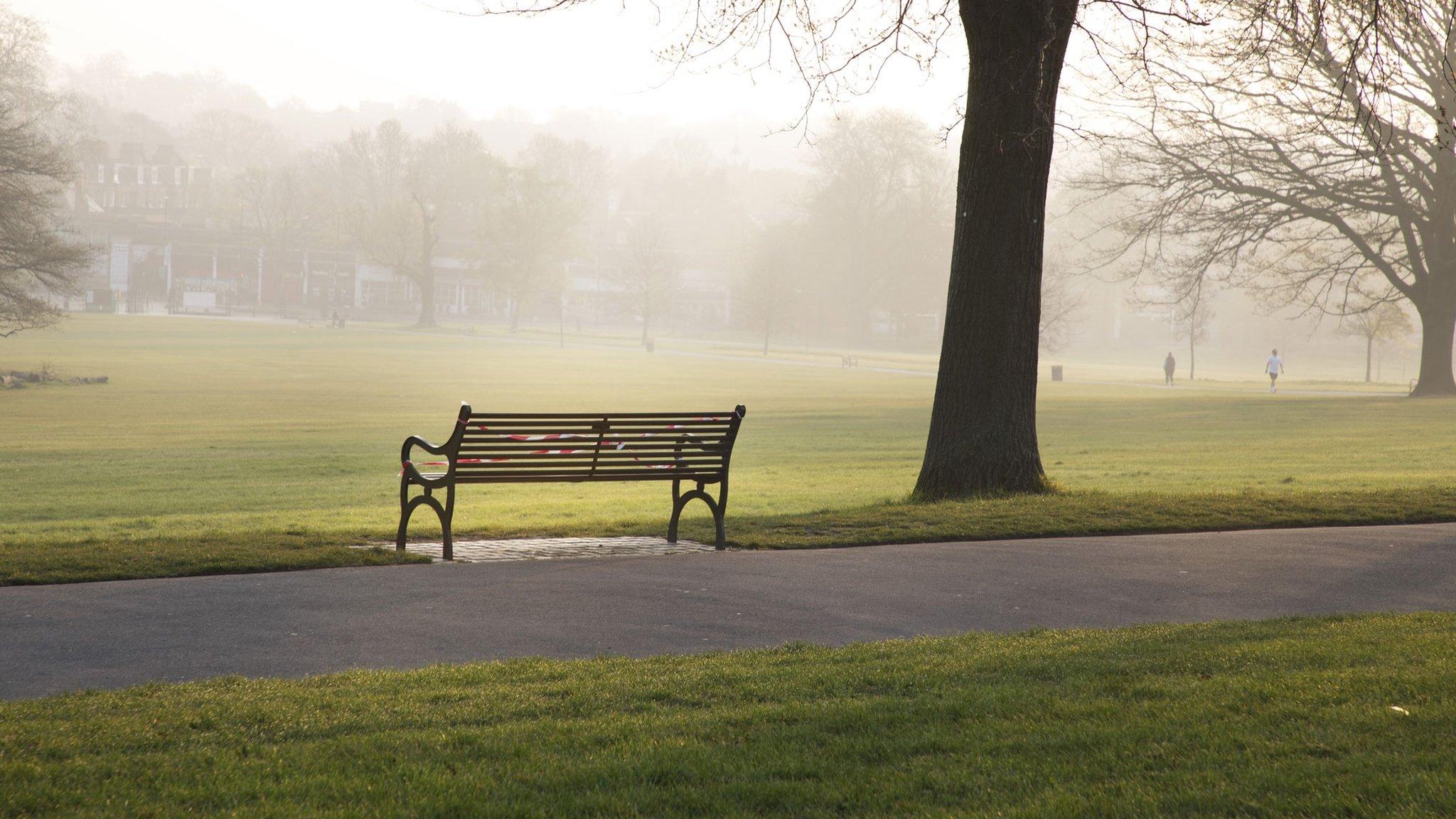
- Published1 July 2022

- Published5 January 2021

- Published3 January 2021
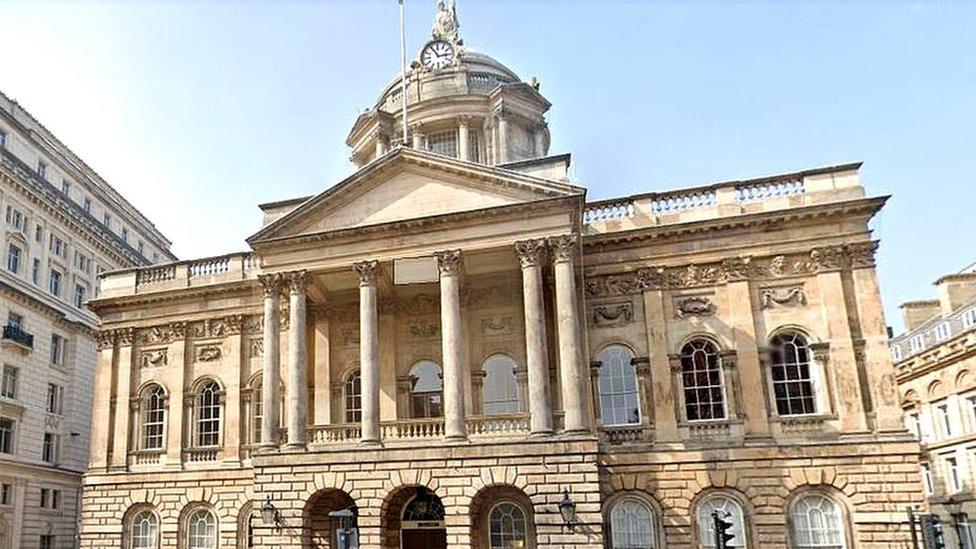
- Published30 December 2020
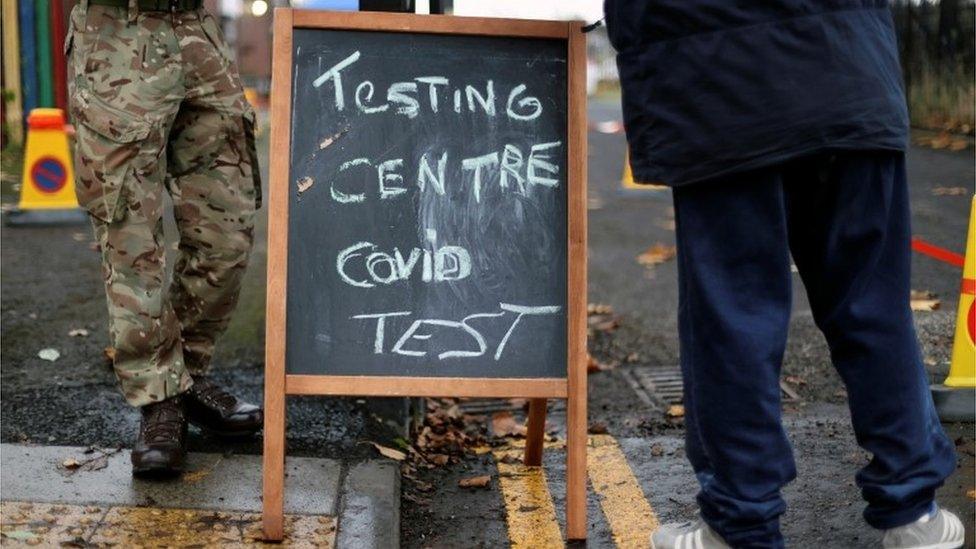
- Published23 November 2020
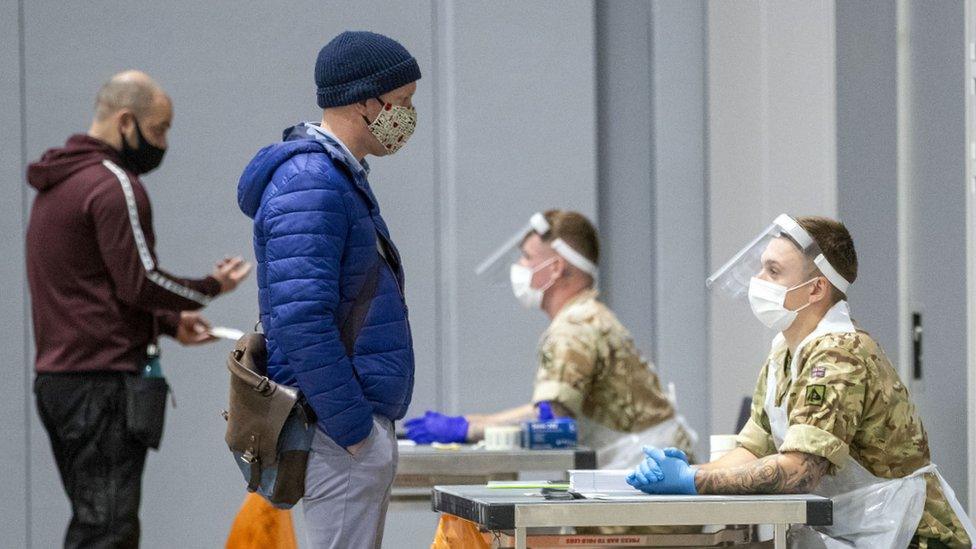
- Published6 November 2020
